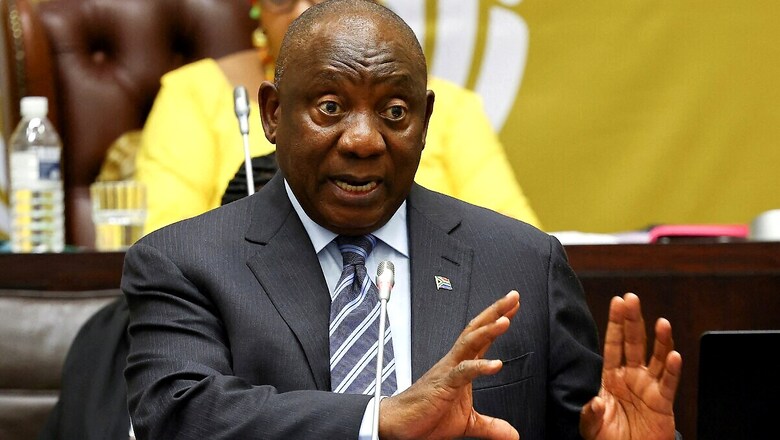
views
As the African Union became a permanent member of the G20 on Saturday, South African president Cyril Ramaphosa called for accelerating the transition to low carbon, climate resilient, sustainable societies.
In a post on X, he also said that South Africa calls for an enhanced and expanded ”Global Partnership for Sustainable Development” backed by the suggestions outlined in the Addis Ababa Action Agenda (AAAA) on Financing for Development.
Ramaphosa expressed delight over the African Union becoming a member of the G20.
Responding to Ramaphosa’s post on X, Prime Minister Narendra Modi said, ”With the African Union strengthening the G20 family, we will cement partnerships that prioritise all-round development, leading to a better planet”.
In a significant milestone under India’s G20 presidency, the 55-member African Union on Saturday became a new permanent member of the grouping of the largest economies of the world. It is the first expansion of the influential bloc since its inception in 1999.
All member countries of the G20 accepted Prime Minister Modi’s proposal to bring the key bloc of the Global South to the high table of the world’s top economies.
Ramaphosa said on X that ”Global reconstruction in the wake of the COVID-19 pandemic presents a unique opportunity to accelerate the transition to low carbon, climate resilient, sustainable societies.” The South African president added that ”developing economies are bearing the brunt of climate change, despite carrying the least responsibility for this crisis”.
He said that ”as African and other developing economy countries, we face the task of meeting our climate commitments in the midst of significant developmental challenges like poverty, inequality and unemployment”.
”South Africa calls for an enhanced and expanded Global Partnership for Sustainable Development. This must be supported by the concrete policies and actions outlined in the Addis Ababa Action Agenda on Financing for Development,” he added The AAAA was adopted at the Third International Conference on Financing for Development in Addis Ababa in 2015. It provides a new global framework for financing sustainable development by aligning all financing flows and policies with economic, social and environmental priorities. ”Climate change, environmental degradation, unsustainable consumption and production and resource scarcity are challenges that can only be addressed collectively and with a great deal of solidarity,” Ramaphosa said.



















Comments
0 comment